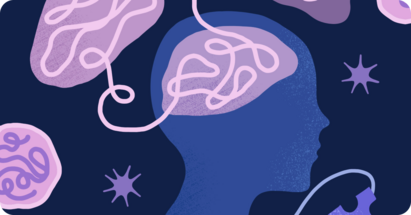Functional Neurological Disorder ICD-10 Codes

Published April 15, 2025

Looking for a printable chore tracker? Whether you’re a family therapist, individual counselor, or couples therapist, a chore tracker can be a helpful tool to support your clients.
This article gives mental health therapists a brief overview of their benefits, example ways to use chore sheets, and a free downloadable chore responsibility chart that you can save to your electronic health record (EHR).
A chore tracker helps to manage, coordinate, and keep track a variety of household tasks, including:
Chore sheets can be used by parents to help their children develop core skills for adulthood and to take responsibility for household chores.
Additionally, couples can use a chore tracker to fairly divide chores and maintain an equitable relationship.
There are a range of chore trackers available, depending on the types of task and preferences of the family, such as:
Digital trackers or apps are a great way to keep track of chores. The apps typically allow the users to tailor the chore lists, send reminders, and track progress.
Gamifying charts by using a reward-based system, like stars or points every time the assigned person completes the task, can be another approach for a chore tracker.
This type of chore responsibility chart lists tasks, who they are assigned to, and completion dates.
Physical charts are usually printed on paper or written on a whiteboard in a visible place in the house, like the refrigerator or kitchen area.
Chore sheets should include logistical information like:
In addition, you may want to have regular reviews of your chore tracker, such as a monthly evaluation, to assess if tasks are being distributed fairly or if they need adjusting.
Chore trackers have many benefits, including:
Having clear boundaries about who is responsible for each chore reduces confusion, promotes fairness, and establishes clear expectations, which can minimize conflicts.
Chore sheets are a great way to keep track of daily responsibilities and build sustainable routines. Trackers can reduce feelings of overwhelm by breaking down tasks into more manageable chunks.
Dividing chores in this way can be particularly helpful for children or for people with ADHD, as they may struggle with executive functioning which involves prioritizing tasks, task switching, remembering instructions, and self-regulating.
By using a fun reward system, chore charts can be a way for children to learn valuable life skills like time management, developing a work ethic and independence, learning accountability, and preparing for adulthood.
Chore sheets help families and partnerships to develop strong bonds by working together to achieve a common goal of a clean, organized, and well-maintained home.
By using a point-based system, children may be more motivated to complete the chore knowing they will be rewarded when it is completed.
SimplePractice is HIPAA-compliant practice management software with everything you need to run your practice built into the platform—from booking and scheduling to insurance and client billing.
If you’ve been considering switching to an EHR system, SimplePractice empowers you to streamline appointment bookings, reminders, and rescheduling and simplify the billing and coding process—so you get more time for the things that matter most to you.
Try SimplePractice free for 30 days. No credit card required.
Proudly made in Santa Monica, CA © 2025 SimplePractice, LLC
Proudly made in Santa Monica, CA © 2025
SimplePractice, LLC